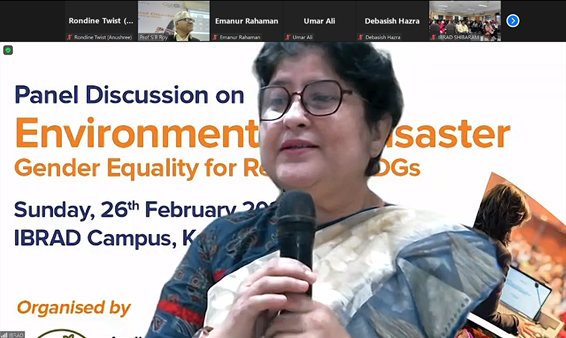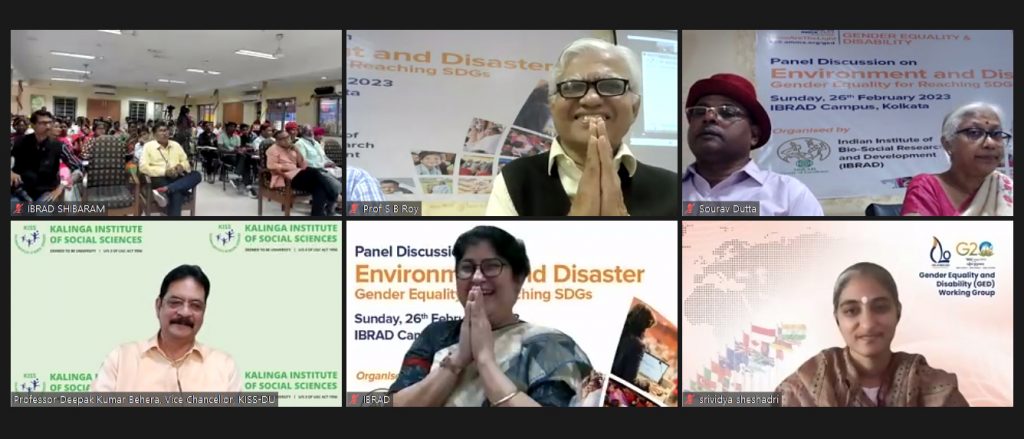
The C20 Gender Equality and Disability Working group (GED WG) held a hybrid panel discussion on “Environment and Disaster: Gender Mainstreaming for Reaching SDGs” on February 26, 2023 from 3:00 pm – 5:30 pm at the IBRAD (Indian Institute of BioSocial Research and Development) campus. The session hosted 115 participants in person and 43 online.
Among our participants were academics, NGOs, Community-Based Organisations (CBOs), government functionaries, panchayat members and community members involved in natural resource conservation-based activities.
The accredited panelists included Professor Dhrubajyoti Chattopadhyay – Hon’ble Vice Chancellor of Sister Nivedita; Professor S. B. Roy – Chairman, IBRAD University, who chaired the session; Professor Deepak K Behera – Hon’ble Vice Chancellor of Kalinga Institute of Social Sciences, a deemed to be University, Bhubaneswar; Prof S.B. Roy, Chairman of IBRAD.
Professor Srividya Sheshadari of Amrita University, set the context of the Panel under G20/C20, sharing vision and plan of the Working Group. Dr Raktima Mukhopadhyay, Executive Director of IBRAD, focused on Gender as a cross-cutting issue of SDGs and the need for gender mainstreaming to reach the SDGS in the context of climate change. Professor Sucheta Sen Chaudhuri, Jharkhand Central University, shared the challenges of Gender as a social construct. Dr B.K. Mahapatra, Former Principal Scientist of CIFE ICAR, highlighted the need for Gender Mainstreaming in the fishery sector to reach the SDGs. Mitali Palodhi, Former Demonstration Officer, Food and Nutrition Board, Government of India, emphasised women’s role in conserving indigenous crops and food and nutrition security in the context of climate change. Additional participants from different states also provided their insights and suggestions.
